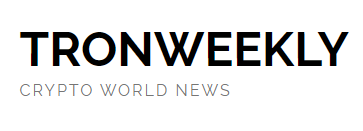The new US administration will alter the rules that govern crypto, which can be both good and bad for people who are just starting out. Part of the change is stricter rules for centralized exchanges, more attention paid to stablecoins, and clearer tax policies. These changes may be scary, but they also add a layer of trust and safety to the industry, making scams and fraud less likely.
As things change, now is a great time for people who are new to crypto to get involved, as long as they stay informed and learn the new rules. Now that there is a focus on openness and following the rules, investors should have better protection.
Key Opportunities for New Crypto Investors
Participating in Emerging ICOs
One of the most promising entry points for beginners is investing in Initial Coin Offerings (ICOs). With the crypto market’s renewed energy, top crypto ICO 2025 projects offer a chance to invest early in innovative technologies before they reach mainstream adoption. Many of these projects focus on decentralized finance, gaming, and utility-based tokens designed to disrupt traditional industries. The rise of meme-based digital assets and community-driven tokenomics, as seen in emerging projects, adds another layer of opportunity for early adopters. Addedly, securing investments with a reliable crypto wallet is necessary, as it guarantees protection against exchange failures and unauthorized access. Due diligence is crucial, as not all ICOs succeed, but well-researched projects can yield significant returns.
Exploring Regulatory-Compliant Crypto Exchanges
As regulations tighten, established exchanges are enhancing their security and compliance measures. This makes platforms like Coinbase and Kraken ideal for beginners, as they offer user-friendly interfaces, educational resources, and regulated trading environments.
Conversely, individuals who desire greater privacy and control over their assets are increasingly adopting decentralized exchanges (DEXs). Decentralized exchanges (DEXs) enable users to trade assets directly with one another, removing the need for intermediaries. Market analysis plays an integral role in identifying trends within DEX platforms, helping investors make informed decisions about liquidity pools and asset volatility. However, they require a better understanding of self-custody wallets, which are essential for securely managing digital assets without relying on third-party services.
Leveraging DeFi for Passive Income
Beyond simple trading, the DeFi structure provides various ways to earn passive income. Yield farming, staking, and liquidity mining are becoming more accessible, allowing investors to grow their holdings. Major financial institutions are considering DeFi integrations, indicating the sector’s potential for long-term growth.
Keeping an Eye on Institutional Adoption
As traditional financial institutions increasingly integrate blockchain technology, new investment opportunities arise. The introduction of spot Bitcoin ETFs and partnerships between fintech companies and crypto startups indicates mainstream acceptance, making it easier for rookies to enter the space with confidence.
Staying Informed and Secure in the Crypto Space
To make sense of this developing industry, education continues to be vital. Follow reputable crypto news sources, join online forums, and read reputable educational content if you are a new investor. Security is just as important. To protect your assets, you must use digital wallets, enable two-factor authentication, and avoid phishing scams.
Things move quickly in the crypto market, and 2025 is a fantastic time for new investors to get in with confidence because regulations will soon be clear. Crypto newcomers can get a strong foothold in the expanding digital economy by focusing on compliance, early-stage investments, and passive income opportunities.

 7 months ago
72
7 months ago
72




 English (US) ·
English (US) ·